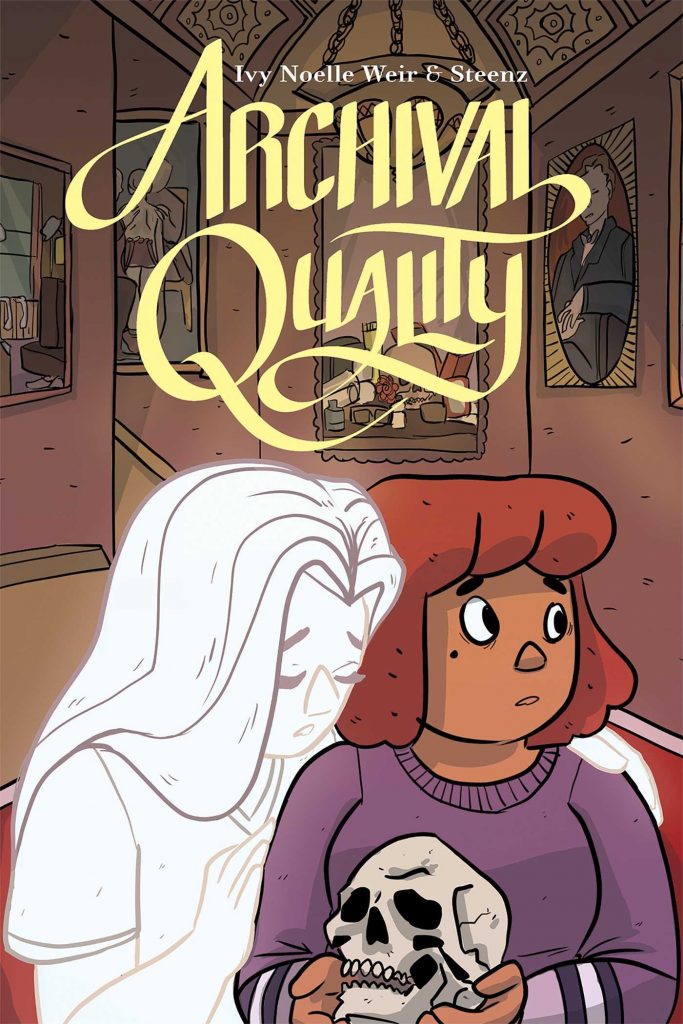Review by Frank Plowright
Cel has only ever wanted to work in the library, but when her mental issues escalate she loses that job. However, it turns out there’s something better, a vacant position for a museum archivist specialising in medical items and only working when the museum is closed at night.
That last item’s rather a fudge on the part of writer Ivy Noelle Weir, as are a couple of other restrictions mentioned early as they’re obviously of later significance. Additionally, while Cel’s ultra-defensive attitude could be attributed as manifesting from her condition, she comes across as treating a caring and concerned boyfriend very poorly. Balancing that, the tension is well cultivated. Before being a museum and archive, the facility was a sanatorium and Cel is soon having dreams that tie in with what life might have been like for former inhabitants. She also finds she’s missing hours during her nightly shifts. Most of her co-workers are friendly, but Cel’s supervisor is very stiff, often evasive and not very understanding, although he did give her the job in the first place when many others wouldn’t have done.
Steenz (Christina Stewart) designs a distinctive cast with the necessary emotional weight while still keeping layouts relatively simple. She ensures people are dressed differently on different days, and while backgrounds aren’t a priority, distinctive use of colour draws attention away from that and fills the panels. Sometimes she surprises, obviously enjoying drawing the lines and swirls of wooden panelling.
Weir has a very leisurely storytelling style, and the first half of Archival Quality could be compacted considerably, but by halfway there’s a mystery brewing about possible unpleasant events in the past. This is nicely complicated by Cel being unsure she can completely trust her own instincts, and the reactions of others toward her. However that’s undermined by unconvincing characterisation. One person’s attitude switches completely when convenient for the story, and Cel’s own behaviour is hardly consistent. An example is not contacting her boyfriend for five days, and then dumping him when he struggles to come to terms with her insistence ghosts are haunting the premises.
It’s also puzzling that mental illness is used as a story device and an excuse for behaviour that only makes sense to the person concerned, without any substantial mitigating efforts to address issues. A half page of medical advice and a polite enquiry near the end doesn’t cut it, and while attention is drawn to the abhorrent treatment of those with mental illness in the past, it’s also half-hearted. It’s an unlikely omission, as in her afterword Weir writes of her own problems with mental health.
As a story Archival Quality succeeds in drawing readers into the characters and what’s happening, and it’s nicely drawn, but too many shortcuts are taken.





